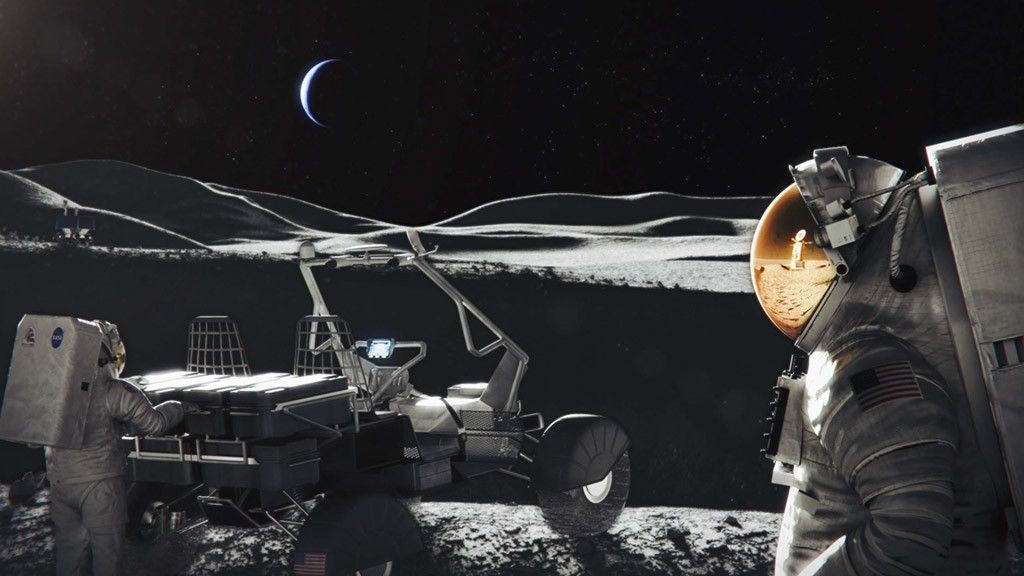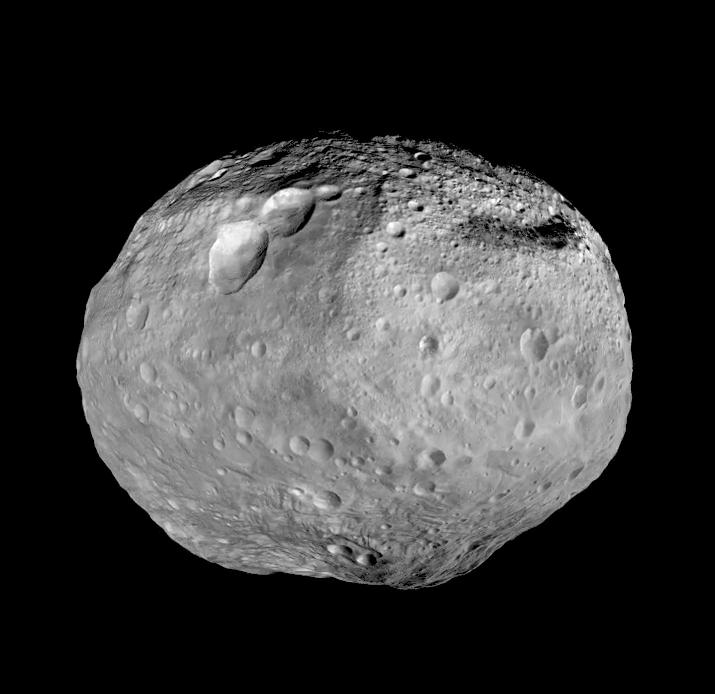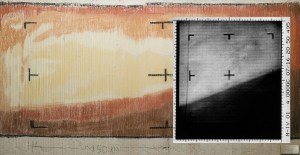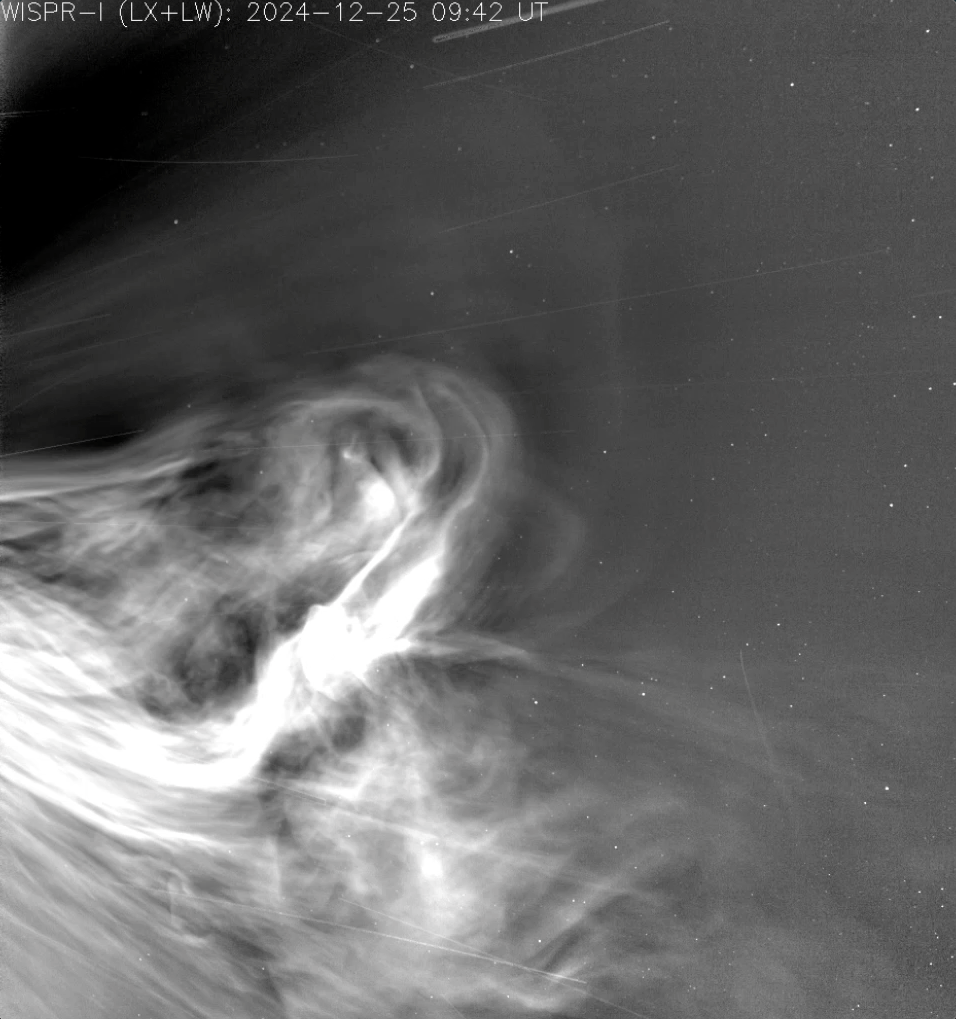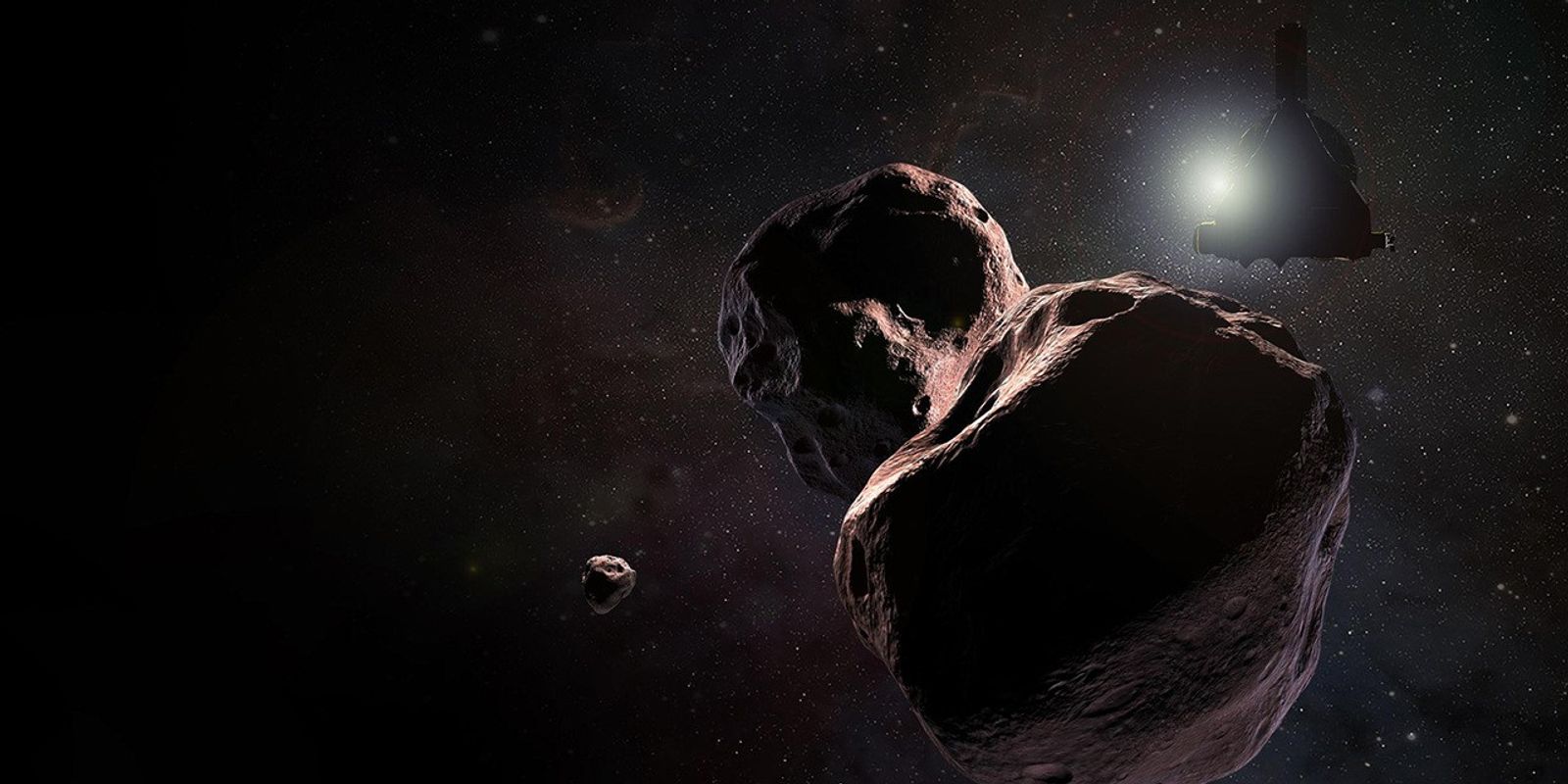The most recent spacecraft telemetry was acquired on Oct. 27 from the Deep Space Network tracking complex at Madrid, Spain. The Cassini spacecraft is in an excellent state of health and all subsystems are operating normally. Information on the present position and speed of the Cassini spacecraft may be found on the "Present Position" page at: http://saturn.jpl.nasa.gov/operations/present-position.cfm
Wednesday, Oct. 21 (DOY 294):
Wednesday, Thursday, and Friday saw the conclusion of the 49th Project Science Group meeting held at JPL.
Onboard the spacecraft, the Cassini Plasma Spectrometer performed three observations as part of the Solar Wind-Aurora campaign. The Composite Infrared Spectrometer (CIRS) spent about 26 hours this week mapping the northern hemisphere of Saturn to determine upper troposphere and tropopause temperatures and executed a stray light calibration. Sunlight falling on the CIRS telescope can possibly be scattered into the instrument by mirror imperfections. To quantify the effects of ring particle impacts on the mirror performance, CIRS monitored the scattered infrared solar radiation as a function of the offset angle from the sun. Imaging Science (ISS) spent about 25 hours searching for lightning on Saturn, observed the transits of Rhea across Dione and Tethys, Enceladus across Tethys, and Titan across Rhea. ISS also observed the outer moon Bestia for about 6 hours, performed a post equinox, edge-on observation of the E Ring, and performed Saturn photopolarimetry with the wide-angle camera, measuring the intensity and polarization of reflected light.
Thursday, Oct. 22 (DOY 295):
Both S55 and S56 are currently in the Science and Sequence Update Process (SSUP), the final sequence development process before uplink to the spacecraft. Today teams submitted any final Spacecraft Activity Sequence Files (SASF) as part of the S55 Final Sequence Integration and Validation phase. Changes this late in the process are permitted for health and safety reasons only, rather than for science enhancement. For S56, the first SASFs were delivered as part of the Sub-Sequence Generation (SSG) process. Next week the Preliminary Sequence Integration and Validation (PSIV1) cycle 1 merged background sequence products will be released along with the stripped subsequences. These stripped subsequences are for review purposes in the PSIV1 phase and the basis for the detailed subsequences used to build the PSIV2 cycle 1 sequence products.
Monday, Oct. 26 (DOY 299)
The development process for the S54 E7 DOY 305 Live Update Block kicked off today. A special orbit determination solution was delivered at 4:00 PM; the Sequence Phase List of Ancillary Files was out by 7 PM. The Go/No-go meeting will be Tuesday afternoon at 2:00 PM. The schedule is somewhat compressed as the uplink windows are Friday night and Saturday night/Sunday morning.
Final products from the S57 Science Operations Plan process were handed off from Science Planning to Uplink Operations today. The DSN station allocation file has been posted for team access. Negotiations are almost complete and are pending only the final two days. Tomorrow the S57 SSUP kickoff/SSG waiver disposition meeting will be held.
Tuesday, Oct. 27 (DOY 300)
The USTREAM TV archive of the Cassini scientists answering students' questions about Saturn has received 630 views since it was posted one week ago. This translates to up to 19,000 people, depending on how many viewers were individuals versus classrooms of 30 students. To view the video go to: http://www.ustream.tv/recorded/2391081 .
An encounter strategy meeting was held today to cover the period between Nov. 2 and Nov. 21, Enceladus flybys E7 and E8, and maneuvers 221-223.
The Cassini-Huygens Analysis and Results of the Mission (CHARM) teleconference for October was held today. Topic: "The Search for Activity on Icy Satellites that aren't Enceladus." The presentation package is online and available at: http://saturn.jpl.nasa.gov/video/products/MultimediaProductsCharm/

















